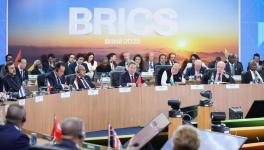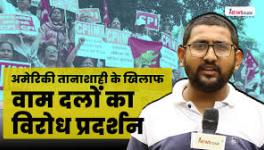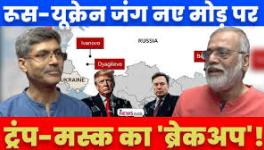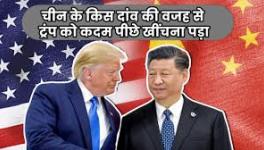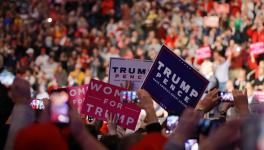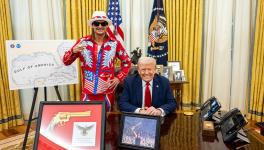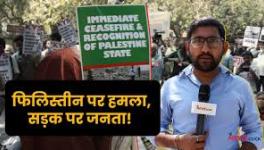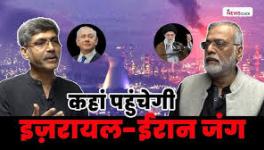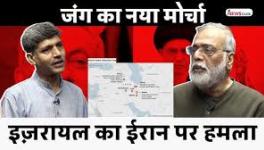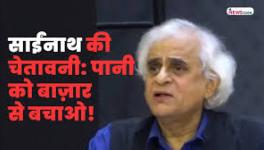Latin America Congratulates Chavista Election Win, Venezuela Opposition Looks to Trump for Hope
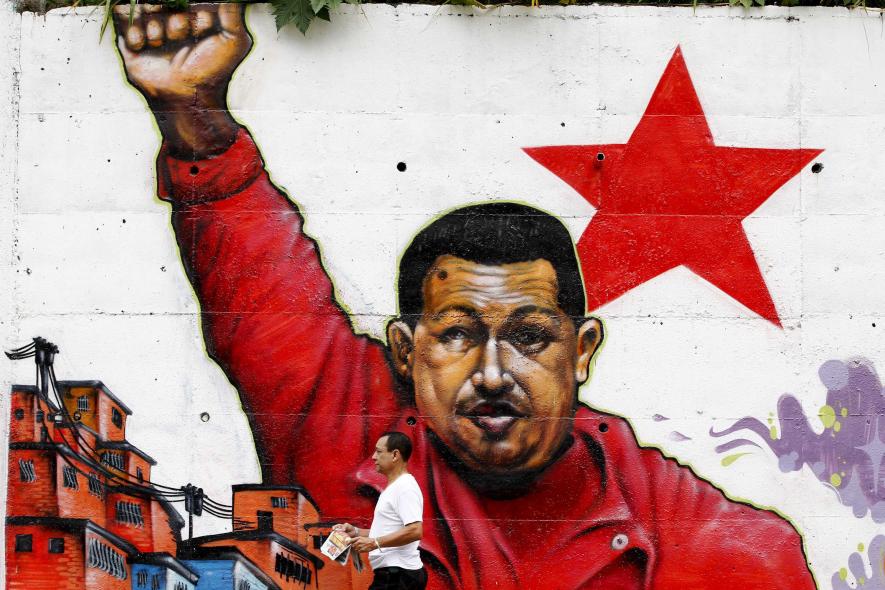
Venezuelan President Nicolas Maduro has received praise from across Latin America for Sunday's regional election where Socialists won 75 percent of the posts.
“Congratulations Venezuela for democracy won over intervention and conspiracy. The people defend their sovereignty, dignity and natural resources,” Bolivian President Evo Morales tweeted in light of Maduro's socialist party, or PSUV, winning at least 17 out of 22 governorships
Morales' sentiment was shared by the heads of state of Cuba and Nicaragua.
Cuban President Raul Castro stated that Venezuela has provided the world with another “big lesson on peace, democratic vocation, courage and dignity.” He went on to note that the spirit of Chavez lives on, that “he and Fidel would be very proud of the victory” and the people of Venezuela can “always count on Cuba's support and solidairty.”
Meanwhile, Nicaraguan President Daniel Ortega released a statement congratulating Venezuelan families and the people for Sunday's victory. He characterized the win as a “heroic victory” given the “cruel economic, political, communication and cultural wars” waged against the Venezuelan people.
Latin America's former presidents also expressed their support, including Ecuadorean President Rafael Correa who tweeted: “Venezuela experienced a celebration of democracy. The Bolivarian Revolution amply won the gubernatorial elections.”
The ex-President of Honduras, Manuel Zelaya, released a public statement referring to Sunday's election as a “victory against the criminal attack campaigns orchestrated by the United States against a democratic people who seek dialogue and peace.”
During a speech on election night, Maduro thanked his colleagues for expressing their support for the peaceful, well-organized election.
International guests observing the vote also praised the electoral process for its transparency. The Argentine journalist Pedro Bregier said he and his colleagues had seen no irregularities in the western state of Zulia, an observation echoed by his colleagues around the country.
The Ecuadorean representative of the Council of Electoral Experts of Latin America, CEELA, Alfredo Arevalo said: "It is one of the best electoral processes, audited many times by all parties and political actors."
Venezuela's dispirited opposition is alleging fraud over the socialists' strong win in gubernatorial elections, raising the threat of further sanctions.
Candidates belonging to President Nicolas Maduro's United Socialist Party of Venezuela managed to take at least 17 governorships versus five for the opposition in Sunday's nationwide poll, raising allegations by the United States that the victory proved the country is on an “authoritarian” path.
The strong showing came despite intense pressure, sanctions from Washington and suggestions that the opposition would easily win a majority.
Dismayed leaders of the Democratic Unity coalition, or MUD, demanded an audit while citing various alleged abuses, but fell short of offering detailed evidence of outright fraud.
Meanwhile, the Latin American Council of Electoral Experts confirmed that the elections were clean and transparent.
“The vote took place peacefully and without problems ... the vote reflects the will of (Venezuela's) citizens,” declared CEELA President Nicanor Moscoso during a press conference held the next morning.
CEELA's delegation was among the 1,300 national and international observers, including former Colombian Electoral Court President Guillermo Reyes, Honduran Supreme Electoral Court ex-President Augusto Aguilar, and former Peruvian electoral magistrate Gaston Soto. The group validated that the election was held in a context of “total normalcy” that guaranteed the right to a secret ballot.
Without the morale of a committed widespread support base, downcast opposition supporters now see foreign pressure as their only real hope of hurting Maduro ahead of next year's presidential vote.
The U.S. State Department continues to lodge allegations at Caracas, vowing to keep up pressure on Maduro for supposedly allowing for the “erosion of democracy” in the oil-rich South American nation.
"As long as the Maduro regime conducts itself as an authoritarian dictatorship, we will work with members of the international community and bring the full weight of American economic and diplomatic power to bear in support of the Venezuelan people as they seek to restore their democracy," State Department spokeswoman Heather Nauert said in a statement.
The Trump administration has already imposed sanctions on the country, striking at the government's ability to raise more funds via foreign debt. Washington has also put sanctions on Maduro and top officials, including election board head Tibisay Lucena.
French President Emmanuel Macron, who has also branded Venezuela a dictatorship, expressed concern at claims of "serious irregularities" and "lack of transparency" in the gubernatorial vote.
"France deplores this situation and is working with its EU partners to examine appropriate measures to help resolve the serious crisis," the French foreign ministry said.
Venezuela's government, which insisted in advance of Sunday's vote that it would demonstrate its commitment to democracy, still retains significant support in the country, particularly among the poor and working class.
The opposition, which has struggled to capitalize on discontent over the economy crisis, led months of violent protests earlier this year. At least 125 people died, while thousands were injured and arrested in violence.
Various opposition leaders acknowledged disillusionment and its own members staying home had played a big role in their loss.
"We shot ourselves in the foot," opposition legislator Jose Guerra said.
"When they lose they cry fraud. When they win they shout 'Down with Maduro,'" said Maduro while flanked by his wife and supporters.
Turnout was 61.14 percent in Sunday's polls, with ballots cast at 13,559 polling stations nationwide.
Maduro said it was the highest turnout in 15 years - with more than 10 million people having voted.
The opposition pocketed governorships including the turbulent Andean states of Merida and Tachira and the oil-producing region of Zulia.
The government, which had previously controlled 20 governorships, took states across Venezuela's languid plains and steamy Caribbean coast. It won back populous Miranda state, which includes part of the capital Caracas, and also won in Barinas, Chavez's home state, where his younger brother retained the top job.
Disclaimer: The views expressed here are the author's personal views, and do not necessarily represent the views of Newsclick
Get the latest reports & analysis with people's perspective on Protests, movements & deep analytical videos, discussions of the current affairs in your Telegram app. Subscribe to NewsClick's Telegram channel & get Real-Time updates on stories, as they get published on our website.









